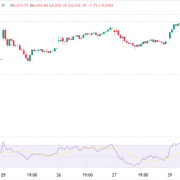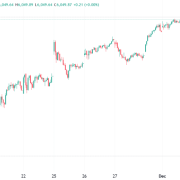
Britain’s Competition and Markets Authority (CMA) has initiated a probe against Google in its first significant investigation under the recently enacted Digital Markets, Competition and Consumers (DMCC) Act.
This new legislation, which came into force on January 1, aims to address anti-competitive behavior in digital markets by granting the regulator expanded powers.
The Competition and Markets Authority said that it was looking to assess whether Google has “strategic market status” (SMS) under the new DMCC Act.
The investigation centers on Google’s dominant position in the UK’s search market, where it controls over 90% of all general search queries.
This designation of SMS could lead to stricter rules for Google, ensuring that its dominance does not hinder competition or innovation in the search industry.
The CMA’s action comes on the heels of the US Department of Justice’s efforts to compel Google to divest its Chrome browser.
The DOJ has filed a case seeking to dismantle the tech giant, citing its monopoly in the search market.
The share price of Alphabet was down by 0.11% in pre-market trading on Tuesday.
Probe against Google: will it ensure a level playing field?
Sarah Cardell, the CMA’s chief executive, said the regulator was probing Google’s dominance of the search market to ensure a “level playing field” — especially as artificial intelligence is shifting the way people search online. She said,
It’s our job to ensure people get the full benefit of choice and innovation in search services and get a fair deal — for example in how their data is collected and stored.
She further pointed out that fair competition is crucial for businesses, whether they are rival search engines, advertisers, or news organizations, to succeed in a highly competitive market.
The regulator on Tuesday highlighted Google’s dominant position in the UK search market as a primary point of concern.
Google makes for more than 90% of all general search queries in the UK, and more than 200,000 advertisers in the country use the firm’s search advertising tools, according to the CMA.
Search is “vital for economic growth,” the CMA said, explaining that its role in connecting companies with other businesses, investors, and customers means it is “critical” that competition works well.
“Google Search supports millions of UK businesses to grow by reaching customers in innovative ways. The CMA’s announcement today recognizes that,” a Google spokesperson told CNBC via email.
“We will continue to engage constructively with the CMA to ensure that new rules benefit all types of websites, and still allow people in the UK to benefit from helpful and cutting-edge services,” the Google spokesperson added.
US regulator’s concern over AI-driven search
The CMA is also evaluating how Google’s market position might affect emerging technologies, particularly artificial intelligence (AI).
With AI-driven search engines like OpenAI and Perplexity gaining traction, the regulator is concerned about whether Google’s dominance could place these innovative players at a disadvantage.
In addition to fostering innovation, the CMA highlighted the need for effective competition to ensure news publishers are fairly compensated for the use of their content.
This aligns with global concerns about the imbalance in bargaining power between tech giants and smaller content providers.
The post Google faces first major probe under UK’s new antitrust rules: what we know so far appeared first on Invezz









